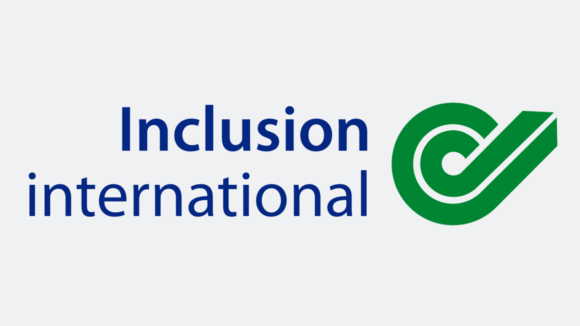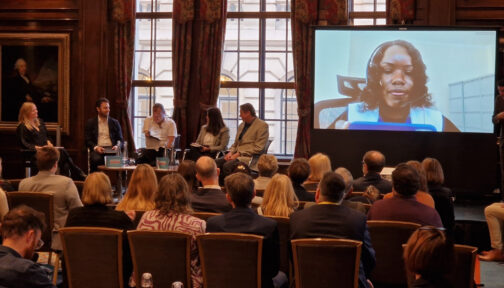
There’s a common misconception, especially among employers, that inclusion in the workplace is expensive or difficult to implement for current and future staff.
But most of the strategies for making workplaces inclusive for people with intellectual disabilities are free and can be implemented without the expense of outside expertise.
Ultimately, workplaces that are designed to give people with intellectual disabilities the opportunity to participate on an equal basis with others are better for all employees. More focus on flexibility, clearer communication, access to support and an inclusive work culture can also bring benefits for employees without intellectual disabilities and make their work easier.
But how? Inclusive Futures partner Inclusion International has put together an easy-to-follow toolkit with recommendations, resources and templates on how to include people with intellectual disabilities at work. The guide is informed by conversations with employers about the support and information they need to take inclusion forward and from conversations with people with intellectual disabilities on the steps that employers can take to meaningfully include them in workplaces.
Here, we share five cost-free recommendations from the toolkit.

Read the full toolkit
For detailed recommendations and example job descriptions, contracts and workplans in accessible formats, read the full toolkit on Inclusion International's website.
1. Reconsider your recruitment practices
Start by identifying the barriers that might prevent people with intellectual disabilities from applying for jobs at your company. For example, consider how you advertise vacancies, whether you include the minimum education-level requirements on job descriptions, the application formats you use and whether you use recruitment software to filter CVs. Then look at each in turn again through an accessible and inclusivity lens: you could write job descriptions in plain language, use different application formats such as videos, remove aptitude testing and provide interview questions in advance.
2. Make your onboarding processes more inclusive
Begin by providing key materials like contracts, workplace policies and procedures in plain language. Offer new employees the opportunity to review their contracts with a member of HR to ensure they understand their entitlements and can ask questions. Also, try to enable in-person onboarding, so employees understand clearly what is expected of them in relation to their role and tasks.
3. Familiarise yourself with existing examples of reasonable accommodation and support
In many cases, people with intellectual disabilities need simple accommodations that may already be standard practice in your workplace. These might include flexible working hours to accommodate working parents or adjustable deadlines to accommodate employees experiencing issues in their personal lives. Other steps you can take include formalising existing peer-to-peer support structures, removing proof of disability requirements as a pre-requisite to providing access to support, and providing regular check-ins to make sure employees can ask questions or request assistance if they need it.
4. Review your workplace communications
Produce one version of internal communications in an accessible format. Create internal standards for email communication, such as using plain language, a set font and size, and clear line spacing so emails are easy for everyone to read. Make it company policy to share agendas for meetings in advance to allow employees to prepare and supplement important verbal announcements with written communications. Ensuring that this best practice is followed at the highest levels of management makes it clear that there is buy-in for inclusion across the business.
5. Mainstream inclusion across your organisation’s policies
Many organisations start by testing inclusive ways of working and then embed those changes in company-wide policy. Start by reviewing existing policies to ensure they do not single out people with disabilities and that they are presented in a format that is easily accessible. Use workplace policies to affirm your commitment to diverse recruitment and track progress against diversity and inclusion targets. Company policies must also have clear reporting channels so employees can report instances of harassment, mistreatment, denial of reasonable accommodation and other instances of discrimination on the basis of their disability.
Ask the experts
Workplace training on inclusion and appropriate support, which is delivered by people with intellectual disabilities themselves, often has the greatest impact.
Self-advocacy organisations and other organisations of people with disabilities already offer training around these topics. Providing employees with an opportunity to speak directly to the experts and ask them questions can be a valuable way of taking inclusion forward in your workplace.
More news and opinions

Global Disability Summit 2025: Closing the gap between disability inclusion and development
Inclusive Futures is attending the summit in Berlin on 2-3 April. Visit our booth or attend our panel event to connect with us and learn more about our programme insights.

Sense International wins prestigious Zero Project award for its work with entrepreneurs with disabilities
Sense International has won a 2025 Zero Project Award for empowering individuals with deafblindness and complex disabilities in Kenya to build successful businesses and achieve financial independence.

Driving change: launching the six principles for inclusive development
Inclusive Futures and the UK Foreign, Commonwealth & Development Office marked International Day of People with Disabilities by jointly hosting an event to launch the six principles for inclusive development.